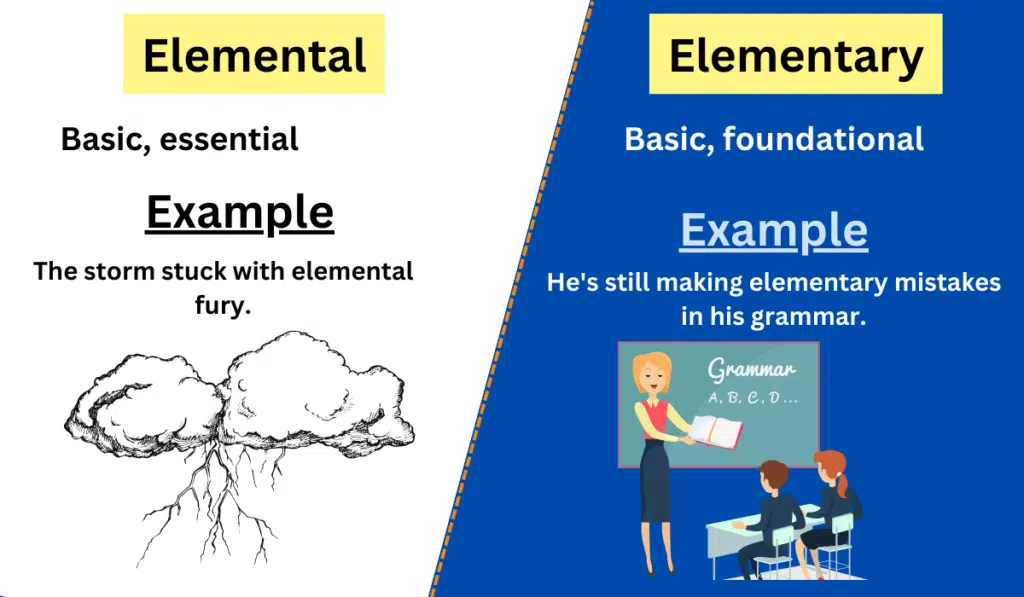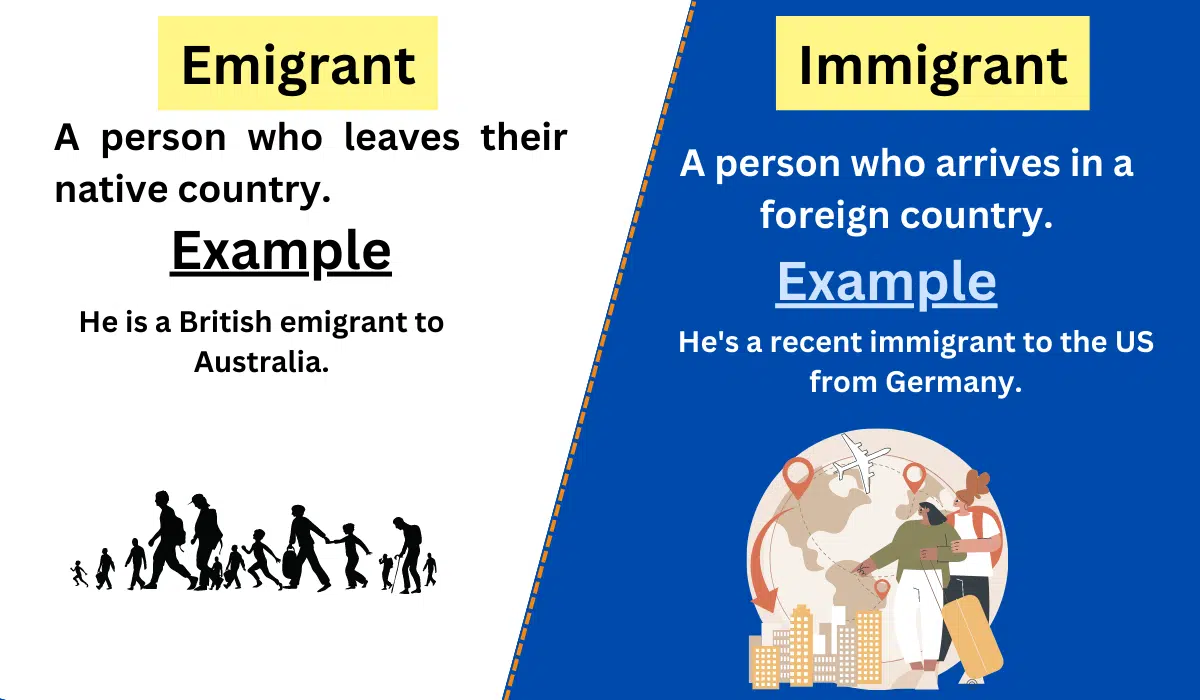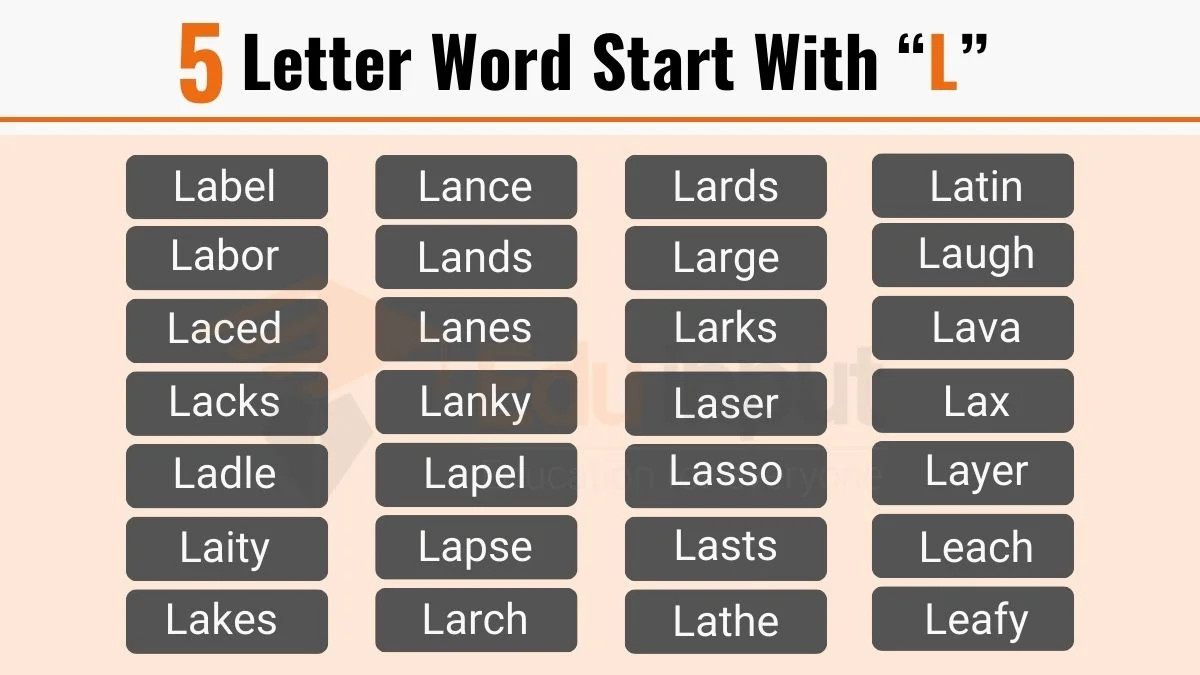Elemental vs. Elementary-Difference between and examples
In the English language, there are word pairs that can cause confusion due to their similar spellings or pronunciations. One such pair is “elemental” and “elementary.”

Although these words may sound alike, they have distinct meanings and applications.
This article aims to shed light on the difference between “elemental” and “elementary,” providing comprehensive explanations, illustrative examples, and a comparative analysis.
By understanding their unique definitions, we can communicate effectively and prevent potential misunderstandings.
Meanings and Examples
Elemental Meaning
The meaning of elemental is,
Adjective: “Elemental” refers to something related to the basic, essential, or fundamental aspects of a subject or phenomenon.
Examples of Elemental
- The artist’s painting captured the elemental beauty of nature, showcasing the raw power and majesty of the mountains.
- The team of scientists conducted research to understand the elemental composition of the newly discovered mineral, analyzing its fundamental properties and characteristics.
- The ancient philosophy delves into the elemental forces governing the universe, exploring the fundamental principles that shape existence.
Elementary Meaning
The meaning of elementary is,
Adjective: “Elementary” describes something that is basic, foundational, or intended for beginners or young learners.
Examples of Elementary
- The school offers an elementary education program designed to provide young children with fundamental knowledge and skills in various subjects.
- The math problem was so elementary that even the youngest students in the class could solve it effortlessly.
- The detective started with elementary investigative techniques to gather initial evidence and clues for the case.
Difference between Elemental and Elementary
| Category | Elemental | Elementary |
| Adjective | Basic, essential, fundamental | Basic, foundational, intended for beginners |
| Example | Elemental beauty, elemental composition | Elementary education, elementary math problem |
| Usage | Describing fundamental aspects | Referring to basic or introductory levels or concepts |
| Grammar | Adjective | Adjective |
Usage in a Paragraph
Understanding the distinction between “elemental” and “elementary” is crucial for clear and precise communication.
Consider a scenario in a science class where students are learning about the periodic table.
The teacher explains that the elements listed in the table represent the elemental building blocks of matter, highlighting their fundamental role in chemistry.
As part of an elementary chemistry lesson, the students are then introduced to the basic concepts of atoms, molecules, and chemical reactions.
The teacher ensures that the content is at an elementary level, suitable for the young learners to grasp and establish a solid foundation in the subject.
In this paragraph, “elemental” is used to describe the fundamental nature of the elements themselves, emphasizing their essential role in chemistry. On the other hand, “elementary” is used to indicate the basic level of the content being taught, tailored to the comprehension level of the students.
By discerning the dissimilarity between “elemental” and “elementary,” we can avoid confusion and convey information accurately.
“Elemental” pertains to the basic, essential, or fundamental aspects of a subject or phenomenon, while “elementary” refers to something that is basic, foundational, or intended for beginners or young learners.
Whether discussing fundamental elements or introductory concepts, a clear understanding of these words enhances our ability to express ideas precisely.






Leave a Reply